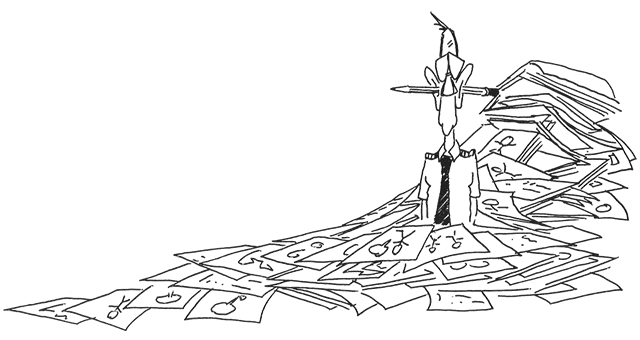I must admit that I often begin a speech, class, or soapbox session with a statement meant to startle the audience but later shows itself as a piece of irony or a twist of language to illustrate a true point. Case in point: "Do unto yourself as you would do unto others." "Hey wait a minute," you might say, "you got that backwards." No. No I didn't . . .
— James Albright

Updated:
2017-09-15
The View From a Clinical Psychologist
Many of us tend to take better care of our pet dogs than we do for ourselves. We make sure Fido gets regular visits with the Vet and if Fido needs a pill, we dice up the pill if needed and coat it in cheese or peanut butter to make sure Fido gets better if sick or stays healthy if not. But we often skip our own medical check ups and sometimes a prescription is too expensive or inconvenient to pick up. In Dr. Peterson's words: "Why wont you just take your damn pills?"
I used to just say, "Charity begins at home." But after reading this book I started saying, "Do unto yourself as you would do unto others." It is the first step in keeping healthy and happy. Sine qua non. Without this, nothing.
- We deserve some respect. You deserve some respect. You are important to other people, as much as to yourself. You have some vital role to play in the unfolding destiny of the world. You are, therefore, morally obliged to take care of yourself. You should take care of, help and be good to yourself the same way you would take care of, help and be good to someone you loved and valued. You may therefore have to conduct yourself habitually in a manner that allows you some respect for your own Being-and fair enough. But every person is deeply flawed. Everyone falls short of the glory of God. If that stark fact meant, however, that we had no responsibility to care, for ourselves as much as others, everyone would be brutally punished all the time. That would not be good. That would make the shortcomings of the world, which can make everyone who thinks honestly question the very propriety of the world, worse in every way. That simply cannot be the proper path forward.
- To treat yourself as if you were someone you are responsible for helping is, instead, to consider what would be truly good for you. This is not "what you want." It is also not "what would make you happy." Every time you give a child something sweet, you make that child happy. That does not mean that you should do nothing for children except feed them candy. "Happy" is by no means synonymous with "good." You must get children to brush their teeth. They must put on their snowsuits when they go outside in the cold, even though they might object strenuously. You must help a child become a virtuous, responsible, awake being, capable of full reciprocity-able to take care of himself and others, and to thrive while doing so. Why would you think it acceptable to do anything less for yourself?
- You need to consider the future and think, "What might my life look like if I were caring for myself properly? What career would challenge me and render me productive and helpful, so that I could shoulder my share of the load, and enjoy the consequences? What should I be doing, when I have some freedom, to improve my health, expand my knowledge, and strengthen my body?" You need to know where you are, so you can start to chart your course. You need to know who you are, so that you understand your armament and bolster yourself in respect to your limitations. You need to know where you are going, so that you can limit the extent of chaos in your life, restructure order, and bring the divine force of Hope to bear on the world.
- You must determine where you are going, so that you can bargain for yourself, so that you don't end up resentful, vengeful and cruel. You have to articulate your own principles, so that you can defend yourself against others' taking inappropriate advantage of you, and so that you are secure and safe while you work and play. You must discipline yourself carefully. You must keep the promises you make to yourself, and reward yourself, so that you can trust and motivate yourself. You need to determine how to act toward yourself so that you are most likely to become and to stay a good person. It would be good to make the world a better place. Heaven, after all, will not arrive of its own accord. We will have to work to bring it about, and strengthen ourselves, so that we can withstand the 'deadly angels and flaming sword of judgment that God used to bar its entrance.
- Don't underestimate the power of vision and direction. These are irresistible forces, able to transform what might appear to be unconquerable obstacles into traversable pathways and expanding opportunities. Strengthen the individual. Start with yourself. Take care with yourself. Define who you are. Refine your personality. Choose your destination and articulate your Being. As the great nineteenth-century German philosopher Friedrich Nietzsche so brilliantly noted, "He whose life has a why can bear almost any how."
- You could help direct the world, on its careening trajectory, a bit more toward Heaven and a bit more away from Hell. Once having understood Hell, researched it, so to speak-particularly your own individual Hell-you could decide against going there or creating that. You could aim elsewhere. You could, in fact, devote your life to this. That would give you a Meaning, with a capital M. That would justify your miserable existence. That would atone for your sinful nature, and replace your shame and self-consciousness with the natural pride and forthright confidence of someone who has learned once again to walk with God in the Garden.
- You could begin by treating yourself as if you were someone you were responsible for helping.
Source: Peterson, pp. 62 - 64

References
(Source material)
Peterson, Jordan B., 12 Rules for Life, Penguin Random House, Toronto, 2018.